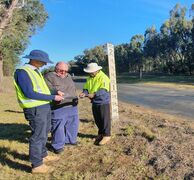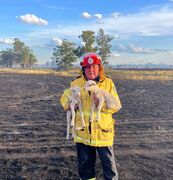Stamp prices go up again next year
Lily Plass
05 December 2024, 8:20 PM
 Photo: Suzy Hazelwood
Photo: Suzy HazelwoodRegional and rural areas will be feeling the weight of a stamp price increase from $1.50 to $1.70 to $2.70, depending on the weight, starting mid-2025.
Despite more people receiving official communication via email, mail is still a trusted form of correspondence in regional and rural areas, according to Curtin University Adjunct Associate Professor of Supply Chain Management Paul Alexander.
"The regions will feel it far more than in the city," Mr Alexander said.
"In regional areas, there are infrastructure issues, older people who are not comfortable with email, and concessional users for whom discounted mail is the most affordable form of communication.
"We therefore need to maintain letters throughout the regions at this age, more so than in the cities."

Paul Alexander, Curtin University Adjunct Associate Professor of Supply Chain Management. Photo: Curtin University
The last stamp price increase occurred in March 2024 when the Australian Competition and Consumer Commission (ACCC) approved a stamp price increase from $1.20 to $1.50.
“I have carefully considered a number of factors in making this decision, including the ACCC’s finding that the proposed increases are on a cost-recovery basis," Minister for Communications Hon Michelle Rowland said.
"They're aiming to keep putting the pressure on people to communicate in alternative ways but not every one is ready for that," Mr Alexander said.
In the 2023/24 financial year, Australia Post reported a $88.5 million pre-tax loss with $361.8 million in losses from the letter business.
"To deliver to every single address in Australia no matter what, you need quite a large network," Mr Alexander said.
"The revenue from mail has gone through the floor."
Australia sends fewer letters now with a population close to 27 million than it did in 1955 when the population was 9.2 million, according to Mr Alexander.
Fifty-nine percent of all post offices are in regional areas and serve as an important site for banking, business, and community services.
Mr Alexander said he cannot comment on whether regional areas get 'better' service "but it does a commitment to maintaining regional services and the relative expense in doing so."
Editor's note: If you have been impacted by any of the issues mentioned in the article please Contact Us at the Western Plains App.



